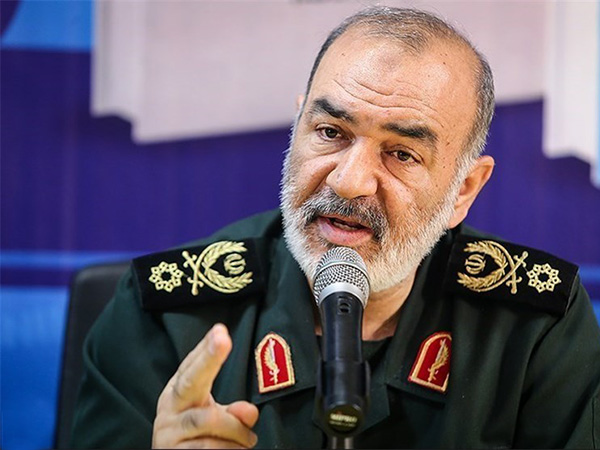Brigadier General Hossein Salami, the Islamic Revolution Guards Corps (IRGC)’s second-in-command, said in a televised interview on Saturday that Syria was the first step in a scenario meant to circumscribe Iran’s regional influence by gradually approaching its borders and entangling the country in a crisis at home.
Syria has been experiencing foreign-backed militancy since 2011. The US, Turkey, and some Persian Gulf countries, primarily Saudi Arabia, have been generously providing ideological, political, and financial support to the militants operating to oust the government of Syrian President Bashar al-Assad.
Washington and dozens of its allies invaded Syria in 2014 with the supposed aim of eliminating the Takfiri terror group of Daesh, which they have signally failed to dislodge.
Salami further highlighted the defeats of foreign-backed militants in Syria’s strategic northwestern city of Aleppo, saying the US and its allies failed in the initial phase of the scenario aimed undermining Iran as a regional player.
If successful, the scenario would have eliminated Syria, one of Tehran’s allies and main supporters of the anti-Israeli resistance movement in the region.
Salami said Washington showed up in Syria to undercut the resistance drive, depose the Syrian administration, and partition the Arab country before heading to Lebanon and Iraq and eventually reaching Iran.
In the event the push had yielded result, Washington would have restored its dominance in the region, he noted.
Aleppo’s liberation however, reversed US fortunes and put its policy in a nosedive, said Salami, adding that the latest gains by the Syrian army also gave a drubbing to the Saudis and Israelis, who likewise strongly contest Assad’s leadership.
“Although, the victory in Aleppo is limited to the boundaries of a city when looked at in a physical and geographical light, but it is absolutely a development of international repercussions given its political and strategic aspects, which considerably affect the sphere of the influence of great powers,” Salami asserted.
